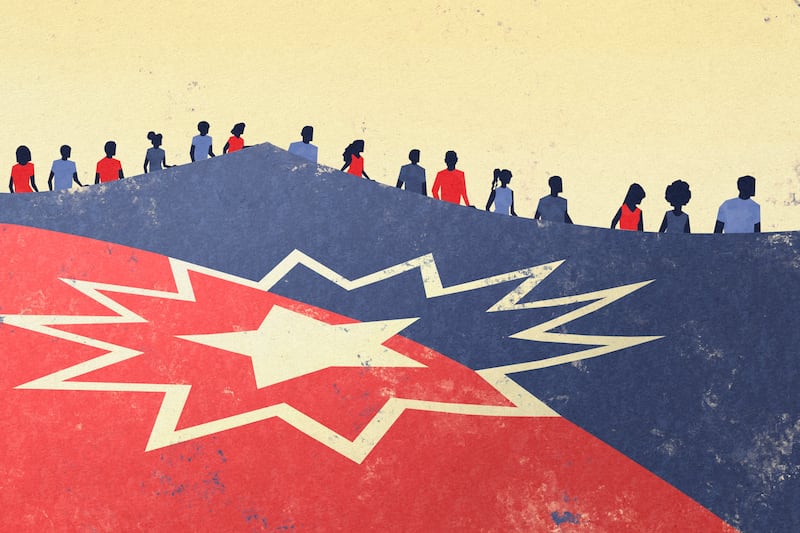The history of slavery in America is ugly, painful, shameful, grievous and complex. It is no wonder that so many people no longer want to speak of it, write about it or read it. Just because people don’t want it talked about, printed or read doesn’t mean it didn’t happen. There are some things that happened in America that are so deeply rooted, embedded in our DNA and passed down generationally that they cannot be expunged, eliminated or erased.
The history of Juneteenth embodies all that. It is a part of American history that makes some people feel a spectrum of emotions, from uncomfortable to irate to proud.
Imagine remaining incarcerated 21⁄2 years after you were ordered to be released. Imagine being subjected to the violence of an abuser 21⁄2 years after receiving a restraining order from a court. Imagine working for a tyrannical oppressor who berated and threatened you every day. Imagine all three things happening at the same time.
The combination of these three situations provides a glimpse into the journey of many Americans pre-Juneteenth.
In September 1862, during the devastating and brutal Civil War, President Abraham Lincoln shared with his cabinet a preliminary draft of the Emancipation Proclamation, which included proposed enactment by January 1863. Lincoln had been building support among the public and Congress. After several iterations with input and edits, the final Emancipation Proclamation was signed on Jan. 1, 1863.
However, it was on June 19, 1865, when Union Army Gen. Gordon Granger arrived in Galveston, Texas, to announce the freedom of 250,000 slaves. His General Order No. 3 stated, “The people of Texas are informed that, in accordance with a proclamation from the Executive of the United States, all slaves are free. This involves an absolute equality of personal rights and rights of property between former masters and slaves, and the connection heretofore existing between them becomes that between employer and hired labor.“
Two and a half years after the Emancipation decree, confederate slave masters kept a tight grip on the reins of slavery. Many withheld the information from slaves or kept slaves from any access to knowledge that they were now free.
Thus, in Texas, there were 21⁄2 more years of fear of being sold on the auction block. There were 21⁄2 more years of punishment and whippings. There were 21⁄2 more years of living under Slave Codes, which considered slaves as property, not people. There were 21⁄2 more years of being forbidden to learn how to read and write. There were 21⁄2 more years of hard labor in unbearable and unsanitary conditions susceptible to diseases. There were 21⁄2 more years ... the atrocities go on and on.
However, there were approximately 2,000 Black Union soldiers who marched on plantations and small communities across the South, spreading the news of freedom in the former Confederate states. Finally, although slaves realized they could be free, they eventually realized they still were not free.
Juneteenth, which became a federal holiday in 2021, represents freedom from slavery. Physical freedom from slave owners was the first step in emancipation. However, what followed was incessant social, psychological, educational and economic enslavement and exploitation, with no actionable laws to protect former slaves.
Today, revisionists and opponents who attack critical race theory, and who attempt to silence and censor discussion about racism and slavery, are viewed as not credible, because Black history and the African American experience are undeniable. It is not pretty. It is embarrassing. It is also real.
Breakthroughs, advances and wins for African Americans were hard-fought, long-suffering and decades-delayed experiences. Making Juneteenth a federal holiday was a step toward racial justice and reconciliation. Juneteenth reminds African Americans how far we have come, what we have endured and, more importantly, what we have overcome.
It is a day of reflection on who supported us, the risks they took and how they stood with us. It is a day of celebration of our advocates, sponsors, soldiers and ancestors. Finally, it is a day of thanksgiving, in which we bow our heads, look to the heavens and thank the Lord for hearing and answering prayers.
President Lincoln’s sober-minded and moral approach to the Emancipation Proclamation is part of America’s history. The 21⁄2 years of seditious, deceptive and inhumane actions by enslavers is part of America’s story. Juneteenth, which represents the freedom from slavery, is part of America’s victory.
The Rev. Theresa A. Dear is a national board member of the NAACP and a Deseret News contributor.


